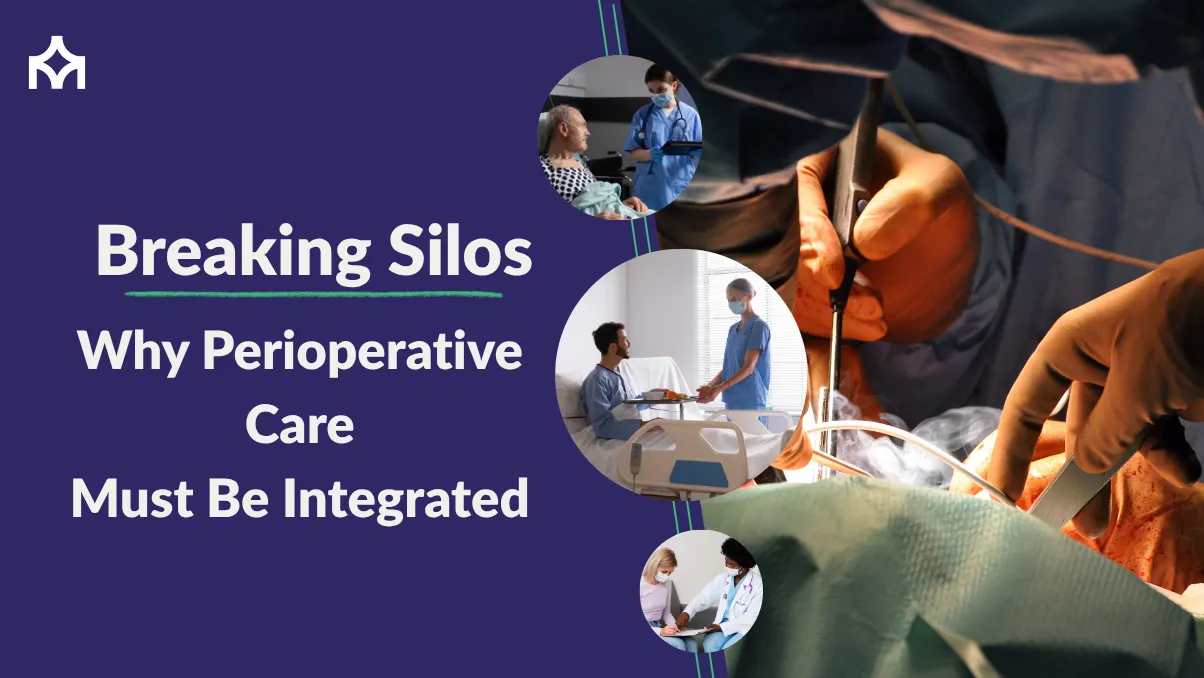The healthcare industry is changing quickly, and patient-centered, value-based care is becoming more and more important. Perioperative care, or the range of services provided before, during, and following surgery, is one crucial area that is still disjointed. Ineffective perioperative procedures result in higher expenses, worse-than-ideal patient outcomes, and inefficiencies. Healthcare systems need to embrace an integrated perioperative care approach and dismantle silos in order to meet these issues.
A lack of coordination across pre-op, intra-op, and post-op phases leads to delayed surgeries, avoidable complications, inefficient resource use, and poor patient outcomes. To address these issues, healthcare organizations must embrace integrated perioperative care models, and Modality Global Advisors (MGA) is helping lead that charge.
The Problem with Siloed Perioperative Care
Traditionally, perioperative care has been managed in isolated phases:
- Preoperative: Primary care physicians and specialists assess surgical readiness.
- Intraoperative: Surgeons, anesthesiologists, and nurses focus on the procedure.
- Postoperative: Recovery teams handle rehabilitation, often with limited communication with preoperative providers.
When surgical teams, anesthesiologists, nurses, and post-op rehab providers don’t operate under a unified strategy, the entire care journey suffers. According to a study, nearly 30% of surgical complications are preventable—many due to poor communication and workflow fragmentation.
Other consequences of disconnected perioperative systems include:
- Prolonged hospital stays
- Inefficient OR scheduling
- Unnecessary readmissions
- Delayed patient readiness
- Higher staff burnout
The Case for Integrated Perioperative Care
Integrated perioperative pathways are now necessary in today's value-driven healthcare environment. Health systems may significantly increase efficiency and outcomes by bringing all stakeholders—surgeons, anesthesiologists, nurses, primary care physicians, case managers, and physical therapists—around a standardized care plan and real-time communication model.
According to research, hospitals that implement integrated perioperative care models report:
- 20–30% reduction in surgical delays
- Fewer postoperative complications
- Improved patient satisfaction scores
- Lower total cost of care
1. Improved Patient Outcomes
Integrated Enhanced Recovery After Surgery (ERAS) protocols can reduce hospital stays by 30–50% and significantly lower readmission rates. Coordinating chronic disease management before surgery—especially for conditions like diabetes or hypertension—helps reduce intraoperative risks and improves surgical success.
2. Cost Efficiency
When care teams share a common plan and data platform, they eliminate redundancies and avoid costly delays. Streamlined workflows can save between $1,500 and $3,000 per surgical case, while fewer complications mean reduced post-op resource consumption and a better bottom line.
3. Enhanced Patient Experience
Patients feel the difference when their care is coordinated. Integrated perioperative pathways ensure personalized care plans, consistent communication, and smooth transitions across every stage—from pre-op assessment to post-discharge follow-up. The result: more confident, better-informed patients who recover faster and trust the system more.
The Role of MGA in Driving Integration
At Modality Global Advisors, we specialize in helping healthcare organizations design and implement cohesive perioperative care models that eliminate silos and promote collaboration.
Here’s how MGA supports integration:
- Care Pathway Redesign: We work with hospitals to standardize and optimize clinical workflows from pre-admission to discharge, ensuring every stakeholder is aligned and accountable.
- Technology Integration: We assess and align EMRs, patient tracking systems, and predictive analytics tools to support seamless data sharing and decision-making across the perioperative continuum.
- Team-Based Performance Models: MGA helps healthcare systems implement multidisciplinary collaboration frameworks, including team huddles, escalation protocols, and role clarity across the perioperative journey.
- Training and Change Management: We support frontline staff and clinical leaders through coaching, workshops, and leadership development to ensure long-term cultural change.
The Future Is Collaborative
Healthcare systems can no longer afford to operate in silos with the rise in surgery numbers and patient complexity. Integration is a strategic necessity rather than merely a method of quality enhancement.
At Modality Global Advisors, we think that the future of surgical excellence lies in integrated perioperative care. It's time to dismantle barriers, make connections, and center the OR ecosystem around the patient journey.

